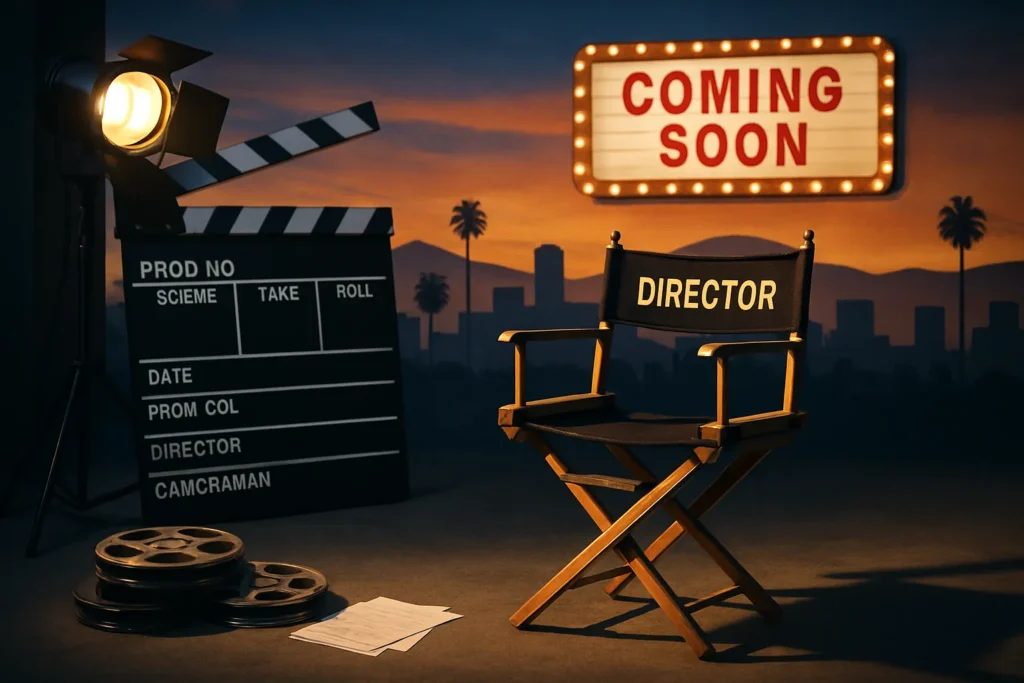The Art of Biopic: Tracing Trump’s Tumultuous Life Story On Screen
Lights are about to shine brighter on Donald Trump—not in a Manhattan boardroom or a Mar-a-Lago ballroom, but on the big screen. A $100 million Hollywood biopic helmed by Italian producer Andrea Iervolino is shaping up to be one of the buzziest, most controversial cinematic projects in years. Known for high-profile films like “Ferrari” and “Lamborghini,” Iervolino now brings his penchant for lush, character-driven narratives to America’s most polarizing figure of the century.
This fresh cinematic venture, allegedly more palatable to Trump than the incendiary “The Apprentice” (which his legal team tried to block), aims to span Trump’s entire meteoric rise—from hotheaded real estate gambler to television ringleader and ultimately the 45th (and, post-2024, 47th) President. Unlike the gritty lens of recent biopics, this production’s proclaimed ambition is to provide a “major new biographical film centered on the life and legacy of Donald J. Trump,” with a purported focus on the challenges and resilience he faced—not just his infamies.
Industry insiders say Iervolino and his backers plan to formally present the project at the Cannes Film Festival, hoping to lure heavyweight partners and settle on a cast that, to date, remains a mystery. Filming is set for the U.S., with the hope of wrapping things up by late 2025. What remains under wraps is whether Trump or his legal team have lent their blessing, or any input at all.
Beyond that, Iervolino’s production history suggests a propensity for the heroic myth-making of controversial male figures, as evidenced by his parade of cinematic celebrations—Ferrari, Lamborghini, Maserati. The question lingers: does approaching Trump through this same lens risk flattening the moral complexity, and who really benefits from a glossy, “balanced” retelling of such a fraught legacy?
The “Kindness” Factor: Should Hollywood Go Soft on Power?
Reports swirl that Iervolino’s biopic will be distinctly friendlier toward Trump compared to previous depictions. In contrast, last year’s “The Apprentice”—Oscars buzz included—offered a scathing portrait of Trump’s early legal and business misadventures, earning swift condemnation from the ex-president’s legal camp.
We face an uncomfortable trend: the “kinder, gentler” biopic, willing to sand down sharp corners in the name of artistic ambition or mass-market palatability. When Hollywood tells the stories of powerful men, too often the impulse is to minimize harm, gloss over failures, or reframe chaos as destiny. Is a sympathetic Trump narrative really what the cultural moment demands?
Harvard historian Nancy Cohen, a specialist in American political culture, warns that such big-budget gloss “risks turning our most troubled political moments into hagiography. There’s nothing artistically courageous about airbrushing dangerous legacies for a global audience.” History offers cautionary tales. Oliver Stone’s “Nixon” attempted nuance, yet still became controversial for its realpolitik sheen; “The Iron Lady” lionized Thatcher but clashed with political realities. When producers prioritize access, or tone down critique in the hope of White House cooperation, democracy pays the real cost.
“If we’re not careful, films like these become the new texts of public memory—writing a story for tomorrow’s civics textbooks, not today’s messy reality.” — Nancy Cohen, Harvard historian
Iervolino’s project is further complicated by the involvement of Keya Morgan—a longtime Trump backer and the former business manager of Marvel’s Stan Lee, infamous for legal entanglements, including elder abuse allegations and fraud claims. A closer look reveals the stakes: When the biopic’s creators are themselves embroiled in controversy, can audiences trust their evaluation of truth and character? Or is the movie simply another vehicle of reputation-laundering for those with power and proximity?
The Politics of Perspective: Whose Trump Story Gets Told?
Every biopic is a power play—an act of editing, selection, and performance. That challenge becomes almost gladiatorial when the subject is Donald Trump, a man who both commands and divides attention like few others. Iervolino himself admits, “His real-life persona is so extreme that any portrayal risks becoming parody.” So, why do this film at all? And whose Trump makes it to center stage: the unrepentant dealmaker, the celebrity showman, the political strongman, or the divisive populist?
The cultural moment demands more than another sanitized hero’s journey. Americans—and the world—deserve media that wrestles honestly with Trump’s flaws and fascinations, not a hagiography to tidy up the narrative for syndication. Films shape how we remember, process, and debate our collective past; to equivocate on facts or intent in pursuit of a bigger box office, or to appease influential subjects, is a distortion of the filmmaker’s duty. Just ask the historians, who still lament the pop-culture canonization of figures like Reagan or Bush, years before the dust of their policies truly settled.
This is not just about another movie, but about our right to scrutinize power—and to demand that those who wield it receive a reckoning worthy of a pluralist, self-aware democracy. As media consumers, you have choices. Ask whose perspectives are centered, whose voices are sidelined, and whether the spectacle of the Trump presidency should be flattened into “character study” for entertainment or held up for collective critique and accountability.
Let’s hope that, if Hollywood tackles Trump, it’s with the courage to tell the story straight—less spectacle, more substance. The stakes are too high for anything less.

